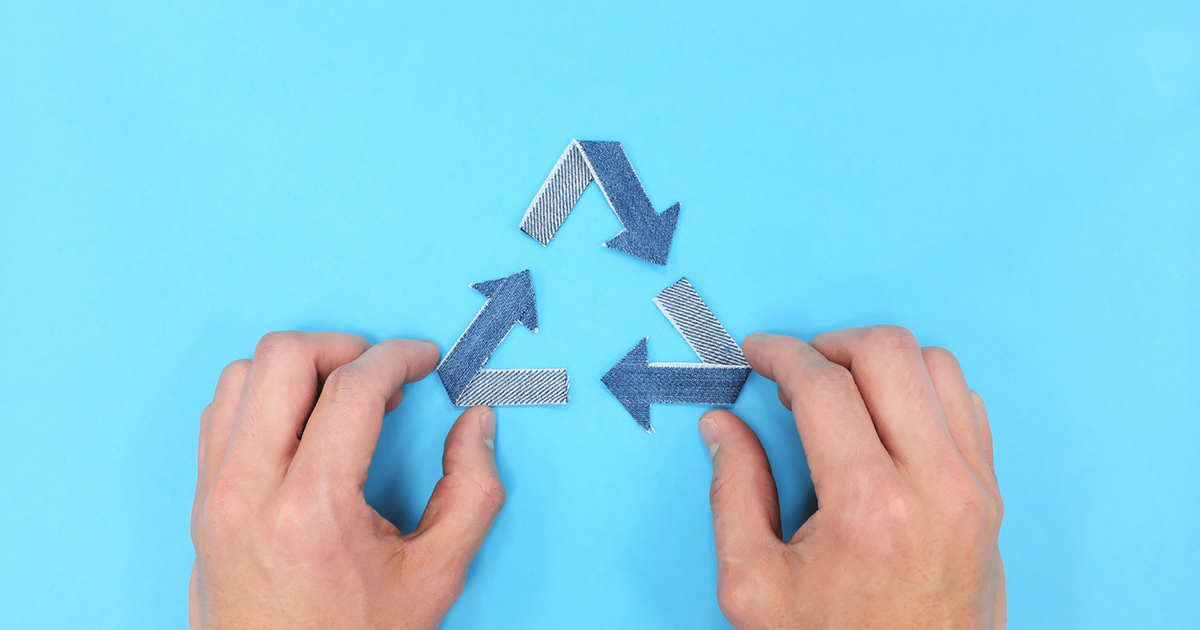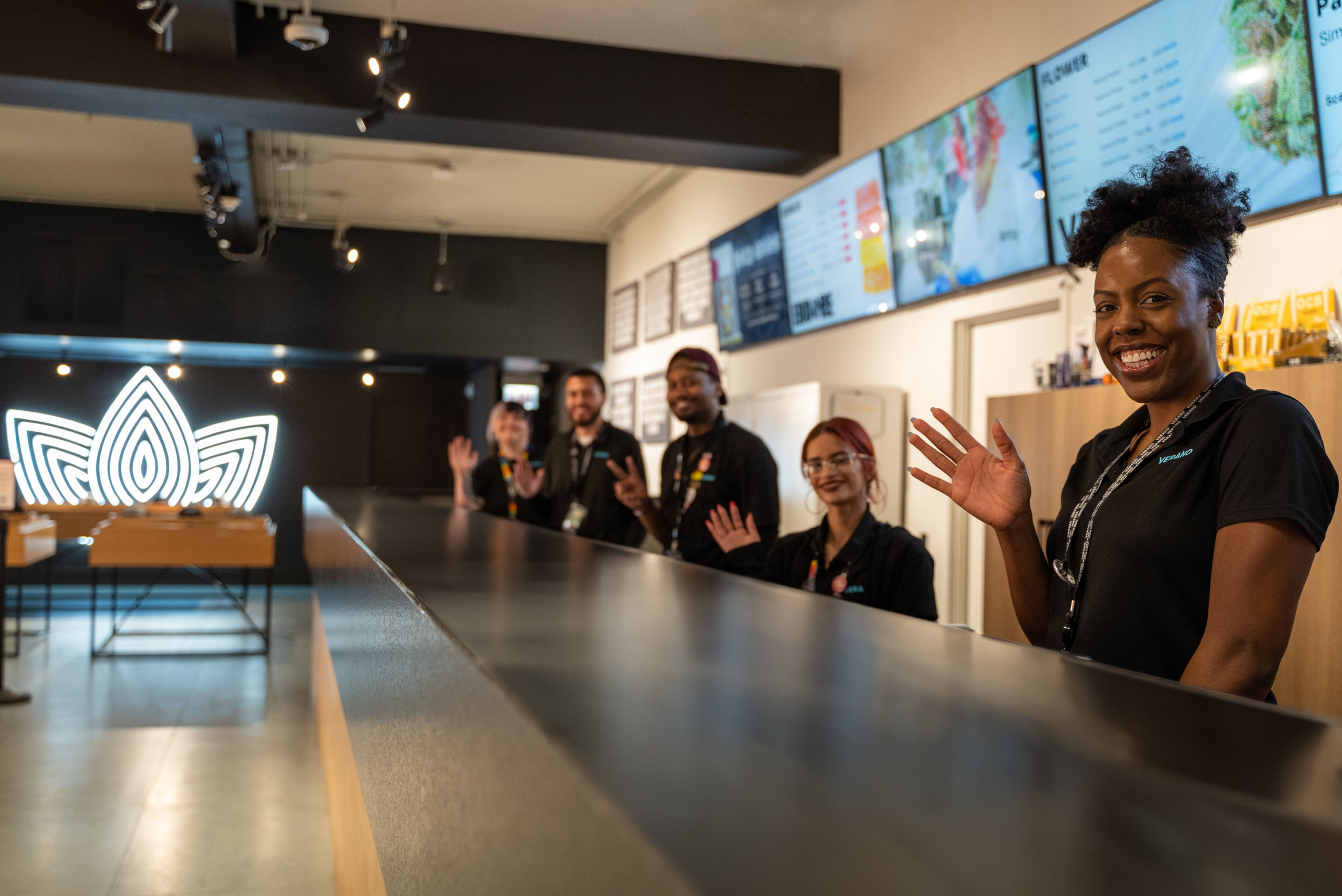- Home
- Blog
- Industry News
- How (and Why) to Recycle Cannabis Plastic Packaging
Most of us are aware that plastic has a negative impact on the environment. With so many videos and pictures on the internet showing turtles with plastic straws lodged in their nostrils or with six-pack rings tangled around their necks, it’s almost impossible to ignore the hazards of our continuing relationship with plastic.
How Plastic Affects the Environment
Plastic entering the ocean and endangering marine life is only a part of the broader issue. Throughout its lifecycle, plastic emits harmful greenhouse gases, which contribute to air pollution and climate change, making plastic both an environmental issue and a human health hazard.
Over the years, plastic has become a key component in many types of packaging. It is lightweight, durable, and cheaper than other packaging materials. Along with packaging, plastic is also used to produce countless other indispensable materials. While many of us are aware that plastic takes centuries to decompose naturally and that it can be deadly to marine life, fewer of us are aware that oil, gas, and coal are the building blocks of plastic. According to a study by the Center for International Environmental Law, between the extraction and transportation of these fuels, 12.5 to 13.5 metric tons of carbon dioxide are released into the atmosphere while creating feedstocks for plastic in the U.S. every year.
Unfortunately, the problem doesn’t end with fossil fuel extraction and transportation. Another 1.686 billion metric tons of carbon dioxide is released every year due to the land clearing required to run fuel pipelines. More than 19 million acres have already been cleared in the U.S. just for running fuel pipelines for plastic, with carbon dioxide released into the atmosphere with each acre cleared. When it comes to greenhouse gasses, every inch adds up.
How Can Plastic be Disposed?
Globally, 40% of our plastic goes into packaging. Plastic bags, plastic wrap, plastic tape — when you stop to think about it, almost everything you can buy at the store is packed in some kind of plastic. All that plastic packaging needs to go somewhere, and unfortunately, there aren’t very many options. Plastic can either be recycled, incinerated, or thrown in a landfill. Because the available space for landfills is limited and growing smaller all the time, waste incineration is a common alternative.
Unfortunately, burning plastic on such a large scale releases another 5.9 million metric tons of carbon dioxide equivalent, and that number is expected to continue rising unless we drastically cut back on our plastic waste.
Putting plastics in landfills does not solve the problem, either. On top of plastic taking anywhere from 20-500 years to decompose depending on type, as plastics begin to break down, they contaminate both the soil and the groundwater.
The Benefits of Recycling Plastic
It’s easy to recognize the environmental dangers inherent in both the production and disposal of plastics, but it can be difficult to know what to do about it. Many grocery stores encourage shoppers to bring their own bags, and some restaurants have stopped serving water with straws. As much as these changes are a move in the right direction, plastic is still everywhere and will continue to be for a long time. For many industries, there just aren’t a lot of other packaging options available. Many food and health products have strict packaging codes and regulations, which makes it difficult or impossible for those products to be packaged and sold in any other material.
Plastic has too many uniquely indispensable properties and uses for it to be replaced any time soon. With that in mind, it’s necessary that we find a way to safely manage our plastic problem. While recycling isn’t a flawless solution, recycling often offers the best chance at mitigating the damages caused by incinerators and landfills. Recycling just 1 ton of plastic cuts down on 5,000 kWh of oil. It also saves approximately 6 barrels of oil as well as 30 cubic yards of landfill space.
What Plastic Products Can Be Recycled?
One of the best ways to reduce our planet’s waste is to recycle it. Unfortunately, it isn’t always clear which items can be recycled and which ones cannot. One of the reasons plastics are such a popular material is because they can be used for many different purposes in a variety of industries. This is because there are many types of plastic, each with its own unique chemical makeup and physical properties.
While there are many types, from a recycling standpoint, plastics can be sorted into two categories — easy to recycle and hard to recycle. Easy to recycle plastics include PET, clear in color and used in most bottles, and HDPE, used in grocery bags, containers and pipes. The easy-to-recycle plastics can be sorted, washed, ground into a powder, melted down, and finally extruded into pellets ready for reheating and remolding.
The hard-to-recycle plastics are a larger category. Polyethylene film, LDPE, and contaminated plastics like unwashed food containers fall here. Many hard-to-recycle plastics reach the recycling facilities and have to be sorted out by the workers, where they are sometimes recycled using a chemical recycling process, but more often are thrown in with the rest of the non-recyclable garbage. With so many hard-to-recycle plastics being used, it’s important that we find more ways to deal with these products in a way that safely cuts back on waste.
And then there’s the issue of smaller items, like pill bottles or plastic sheets. These items frequently are so small they fall into cracks of sorting machines or stuck in gears. Unfortunately, the solution as it stands is to place these small plastics into landfills.
Can I Recycle Cannabis Plastic Packaging?
You might not think that you produce much waste when buying cannabis products, but the average cannabis user visits the dispensary at least once a week and buys a small assortment of cannabis flowers, tinctures, or edibles. If you were to save all the little plastic bags and containers from your weekly dispensary visit in a pile, imagine how that pile would look after just one month. Now picture that pile after a whole year.
This shouldn’t be a problem. After all, can’t we just recycle all the little baggies and canisters and call it good?
Ideally, yes.
In general, the rules and restrictions vary from state to state. Many plastic options can be recycled after a thorough rinse of all excess material - but there is still the size factor. Some cannabis manufacturers succeed in finding a suitable packaging material that can be recycled, but because the items are often so small, many of them literally fall through the cracks of the recycling machinery and get lost, ending up in the trash. Vapes, batteries and any item that contains more than one material pose a special challenge. The materials need to be effectively separated to sort for their respective recycling, which as of yet is not possible.
Cannabis Dispensary Recycling
Image Credit: Resinate Tech - Cannabis Packaging Recycling
If you have ever bought cannabis products from an Arizona dispensary, you have probably looked at your purchases and wondered if it’s possible to recycle pre roll tubes, concentrate jars, or pop-top containers. Most of us want to do right by our planet and look for ways to do so. Fortunately, dispensary recycling is a new possibility at certain Arizona dispensaries, thanks to a local startup called Resinate Tech.
Founded by three young Arizona entrepreneurs who were determined to have a positive impact on the planet, Resinate Tech founders created a way to help cannabis consumers cut down on waste. These creators designed a recycling system capable of recycling cannabis packaging that other recycling facilities could not. Resinate Tech recycle pods accept plastic containers and bags that are too small to make it through large recycling systems, as well as packaging made from other materials that can’t be recycled by municipal programs.
Innovation like that taking place at Resinate is key to building sustainable practices to the cannabis space.
The Future of Recycling in the Cannabis Space
 It is important to remember that the cannabis industry is a budding one. Unique problems tend to follow industry disruptors, and even new product introductions. Keurig’s K Cups coffee pods, though in the market since the late ‘90s, did not begin the transition to recyclable materials until 2016.
It is important to remember that the cannabis industry is a budding one. Unique problems tend to follow industry disruptors, and even new product introductions. Keurig’s K Cups coffee pods, though in the market since the late ‘90s, did not begin the transition to recyclable materials until 2016.
The marijuana industry has shown flexibility and adaptability with the various challenges presented as it has expanded and, like single use coffee pods, there are no signs of the space slowing down. Forward-thinkers like those at Resinate, biodegradable and more readily recyclable packaging options will be key to furthering sustainability within cannabis.
Digital Content Manager for MÜV Florida and Zen Leaf Dispensaries. A cannabis connoisseur with a passion for explaining the miraculous possibility of the plant, Swan began her journey with cannabis as a recreational user and quickly realized its positive impact on her depression and severe anxiety. She joined the cannabis industry as Receptionist and MedTender and witnessed first-hand the immense potential of the plant for a wide variety of ailments, deepening her passion for alternative medicine. Swan is dedicated to self-education on the plant and sharing its potential with all. She holds a Journalism degree from the University of Iowa.
Related articles
Connecticut Adult-Use Cannabis: Here’s What You Need To Know
Connecticut adult-use cannabis will be available on January 10, 2023. Here’s what both recreational users and medical cannabis patients need to know.
The Changing Landscape of the NFL’s Cannabis Policy
The NFL has drastically changed it’s testing on cannabis in recent years. To kick off the football season, dive into the new regulations.
HHS Says Yes to Rescheduling Cannabis, from Verano
The Department of Health and Human Services officially recommended that cannabis be rescheduled to Schedule III. Read more from Verano.

